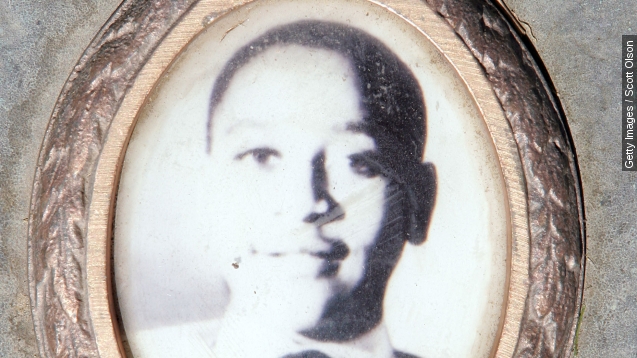
Strict Standards: Only variables should be assigned by reference in /home/noahjames7/public_html/modules/mod_flexi_customcode/tmpl/default.php on line 24
Strict Standards: Non-static method modFlexiCustomCode::parsePHPviaFile() should not be called statically in /home/noahjames7/public_html/modules/mod_flexi_customcode/tmpl/default.php on line 54
Strict Standards: Only variables should be assigned by reference in /home/noahjames7/public_html/components/com_grid/GridBuilder.php on line 29
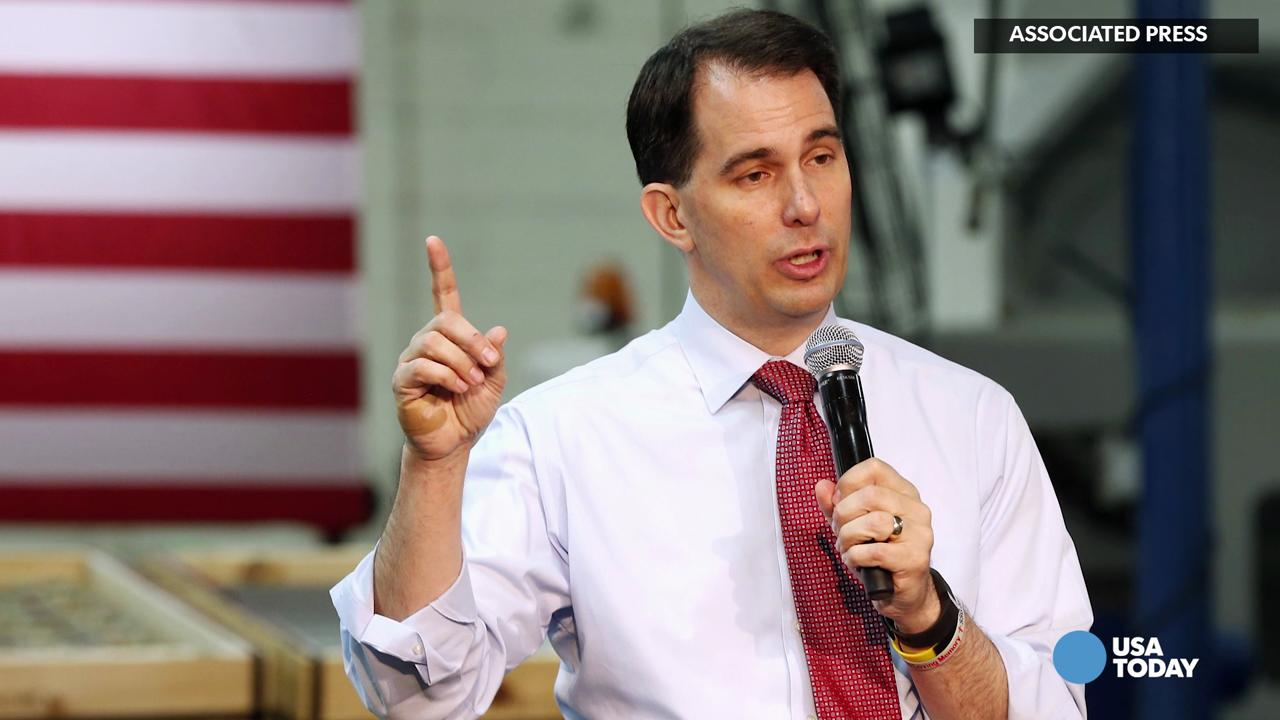
UP NEXT
03
From stickers like Hillary Clinton to switchers like Marco Rubio , the presidential candidates have a wide and varied history when it comes to their views of religion. Rick Hampson for USA TODAY.
The religious journey of Marco Rubio has more twists than a pretzel. By his account, he was baptized a Roman Catholic, then baptized a Mormon, then got his parents to return to the Catholic Church and to enroll him in parochial school, from which he quickly withdrew — all before he turned 13.
Rubio now attends Catholic churches as well as an evangelical Protestant megachurch that his wife (whom he married in a Catholic ceremony) joined during a period when Rubio himself had drifted away from church.
Pope Francis' first U.S. visit next month will focus attention on the 2016 presidential candidates' religious backgrounds, many of which contain almost as many shifts as Rubio's.
In this, the candidates reflect a big part of the nation they hope to lead, one characterized by looser religious loyalties and what a report this year by the Pew Research Center called "a remarkable degree of churn in the U.S. religious landscape.''
Candidates' church switching is "a nice reflection of contemporary American religion,'' says David Campbell, a Notre Dame political scientist and author of American Grace: How Religion Divides and Unites Us. "Voters recognize and accept it in the candidates, because they do it themselves or know people who have.''
The presidential field splits roughly into two groups: stickers and switchers.
The stickers, like a majority of Americans, still worship in the denomination in which they were raised. The switchers have changed denominations or faiths — sometimes, like Rubio, more than once.
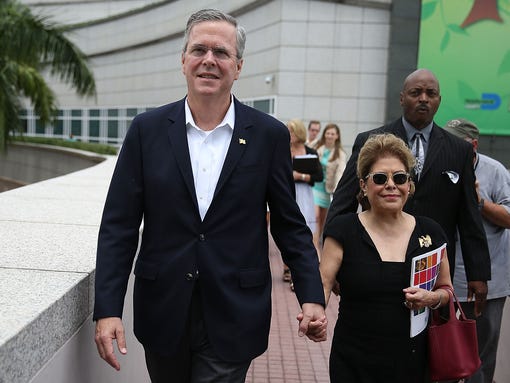
Jeb Bush and his wife, Columba. (Photo: Joe Raedle, Getty Images)
Switchers include these candidates:
• Jeb Bush was baptized an Episcopalian and attended Presbyterian and Episcopal churches as a boy in Texas. In 1995, two decades after marrying a Roman Catholic, he became one himself.
• Scott Walker traded his preacher-father's relatively liberal mainline Protestant American Baptist affiliation for membership in a more conservative nondenominational evangelical megachurch.
• Rand Paul was baptized Episcopalian, attended a Baptist university (Baylor) and now goes to a Presbyterian church at home in Bowling Green, Ky.
• Bobby Jindal, born a Hindu, converted to Roman Catholicism while in college (to his parents' dismay) and now calls himself "an evangelical Catholic.''
• John Kasich, who as a boy aspired to become a Roman Catholic priest, later drifted away from that church. He says that after his parents were killed in a car crash in 1987, he turned back to God. He now belongs to a church in Westerville, Ohio, that's affiliated with the Anglican Church in North America. That denomination was founded in 2009 by former members of the U.S. Episcopal Church dissatisfied with its increasingly liberal tendencies, such as the election of a gay bishop.
• Carly Fiorina, raised an Episcopalian, has spoken of her "personal relationship'' with God, but belongs to no particular denomination or church.
Stickers include candidates like Hillary Clinton, a Methodist since childhood; Martin O'Malley, who attended Catholic elementary school, high school and college, sent his kids to Catholic school and attends Mass daily; and Mike Huckabee, a Southern Baptist who became an ordained a minister in that denomination.
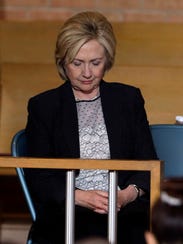
Hillary Clinton prays at the start of a campaign stop at Christ the King United Church of Christ in Florissant, Mo., on June 23, 2015. (Photo: Jeff Roberson, AP)
Ben Carson is a sort of double sticker. He was baptized twice into the Seventh-day Adventists — first as a boy in his native Detroit, and again a few years later at a church in nearby Inkster, Mich., after telling the pastor he'd not fully understood baptism the first time.
It's hard to categorize Donald Trump. Although he was raised as a Presbyterian — his mother was born in heavily Presbyterian Scotland — he's been associated as an adult with Marble Collegiate Church on Fifth Avenue in Manhattan.
Marble Collegiate, part of the Reformed Church in America (once Dutch Reformed), was long the pulpit of the Rev. Norman Vincent Peale, author of the influential '50s best-seller The Power of Positive Thinking.
Rubio is a category of his own. He's what the Pew Center calls a "revert" – someone who leaves a childhood religion before returning to it later in life.
Rubio and the switchers aren't aberrations. About a third of Americans have changed their religious affiliation from the tradition in which they were raised, according to the Public Religion Research Institute, which studies religion and politics.
If the three major Protestant traditions (evangelical, mainline and historically black) are treated as separate categories, then the share of Americans who have switched religions rises to 42%, according to a survey released in May by the Pew Center. And that doesn't include Rubio and other reverts.
The switchers' changing religious preferences haven't fazed voters, but rather seem a familiar part of contemporary American society. "The American religious landscape is a fluid place,'' says Robert Jones, CEO of the Public Religion Research Institute. "So the fluid religious biographies of the presidential candidates are familiar parts of life for many of their constituents.''
America has always been notable for its religious dynamism. Many different Christian denominations, mostly Protestant, have competed for members, suggesting to some scholars why America is more religiously observant than Europe, the home of many of America's original settlers.
In high places, though, there's been a certain premium on constancy. As president, Franklin D. Roosevelt remained senior warden (a sort of board chairman) of St. James Episcopal Church in Hyde Park, N.Y., where he was baptized. So similarly rock-ribbed an Episcopalian was George H.W. Bush that as president he continued to serve on the vestry (or board) of St. Anne's Church in Kennebunkport, Maine, site of the family's summer compound.
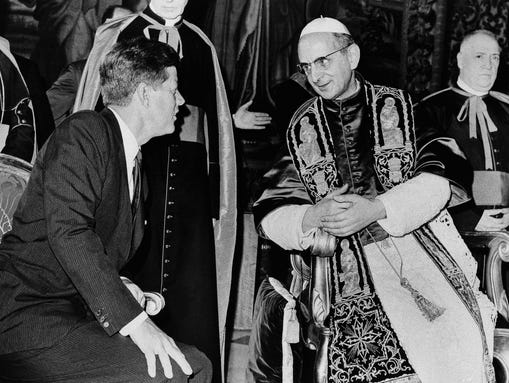
President John F. Kennedy and Pope Paul VI talk at the Vatican in this July 2, 1963, photo. (Photo: AP)
And it's hard to imagine John F. Kennedy as anything other than a Catholic.
But Dwight Eisenhower, whose mother was a member of a denominational precursor of the Jehovah's Witnesses, was baptized as a Presbyterian in 1953 after moving into the White House. And Jimmy Carter, of solid Southern Baptist stock, left that conservative denomination in 2000 because he said its doctrines did not conform with his (more liberal) understanding of Christ's teachings.
In his memoir, An American Son, Marco Rubio expresses no regrets about his own religious odyssey. He says he has fond memories of his three childhood years in the Mormon church. (His family joined the Church of Jesus Christ of Latter-day Saints after moving from Miami to Las Vegas, and eventually left at young Marco's instigation.)
And he says that the evangelical Protestant church to which his wife led him, Christ Fellowship in Palmetto Bay, Fla., sparked a "spiritual reawakening'' in them both. The Rubios tithed $50,000 to the church over a period of three years a decade ago.
But Rubio now considers himself a Catholic. Even while attending Christ Fellowship, "I craved, literally, the Most Blessed Sacrament'' of Holy Communion, he wrote in his autobiography. He cited an old saying that doubtless resonates with Pope Francis: "Once a Catholic, always a Catholic.''
Follow @rickhampson on Twitter.
Read or Share this story: http://usat.ly/1EvA3zT
TOP VIDEOS
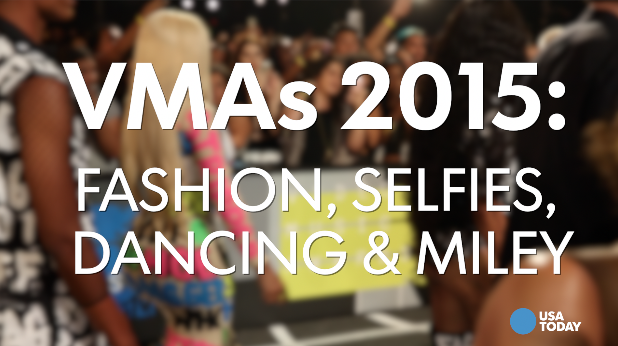
VMAs 2015: Fashion, selfies, dancing & Miley
02:18
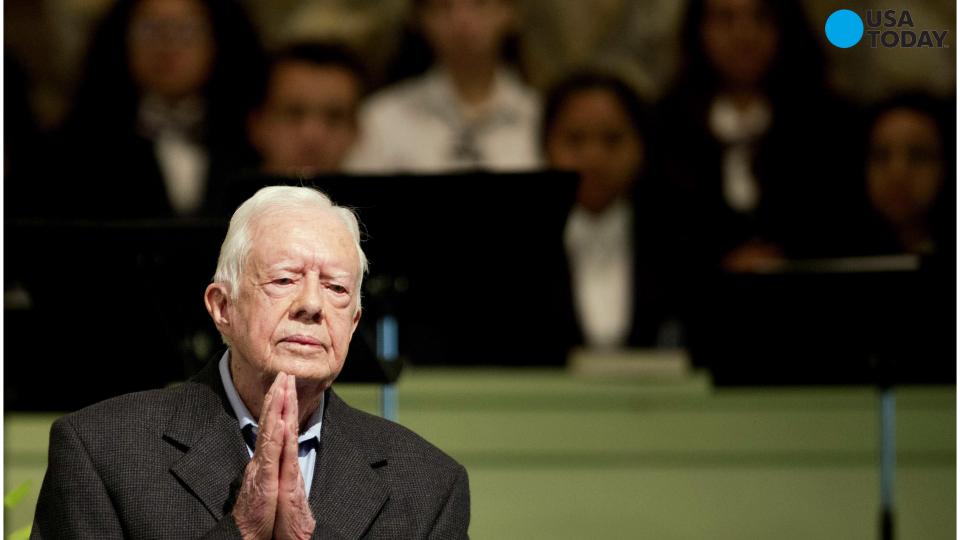
Crowds flock to Georgia to pay tribute to cancer-stricken Jimmy Carter
01:13
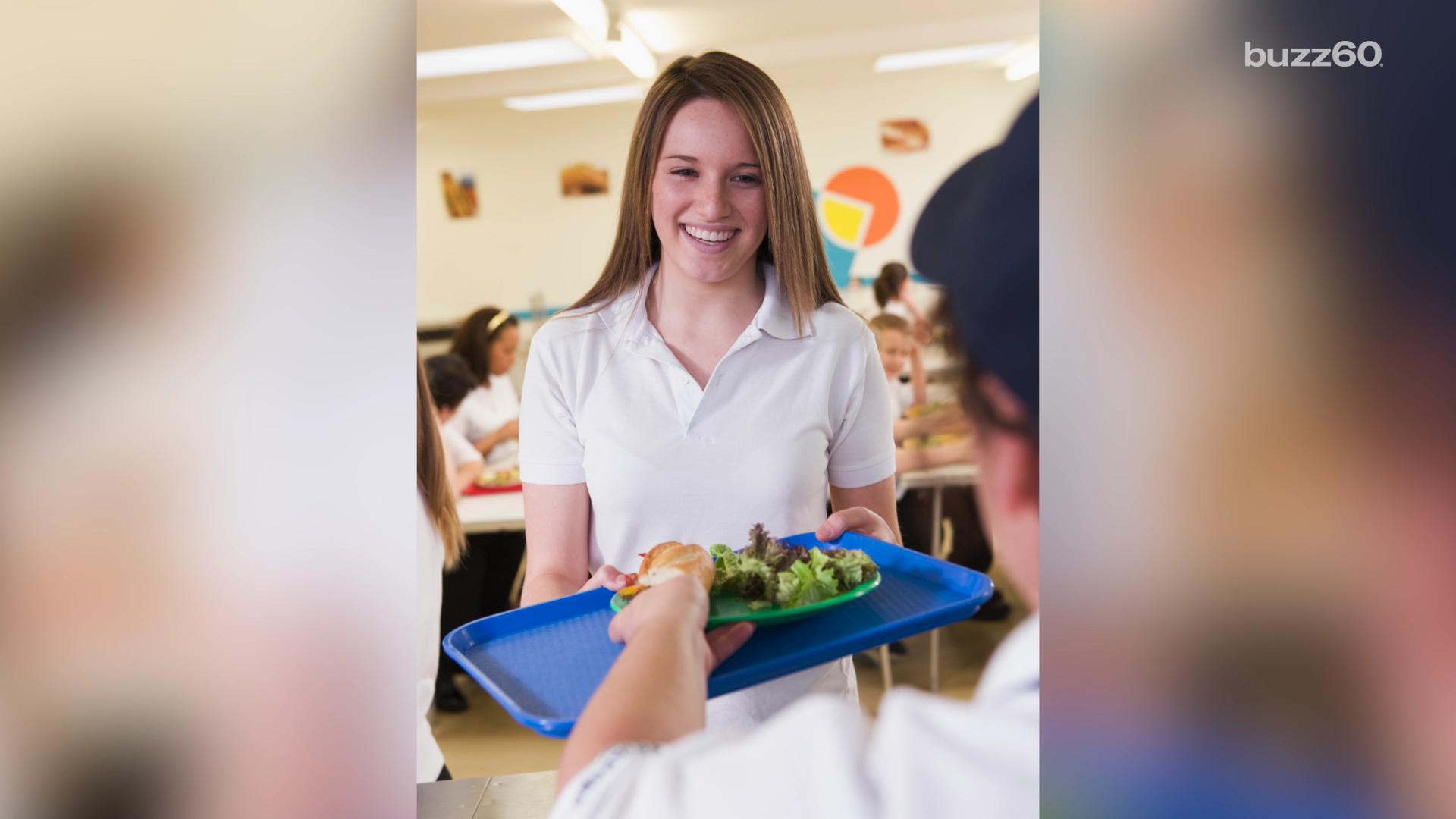
Kids are not going to like the healthier surprises this back to school season
01:00
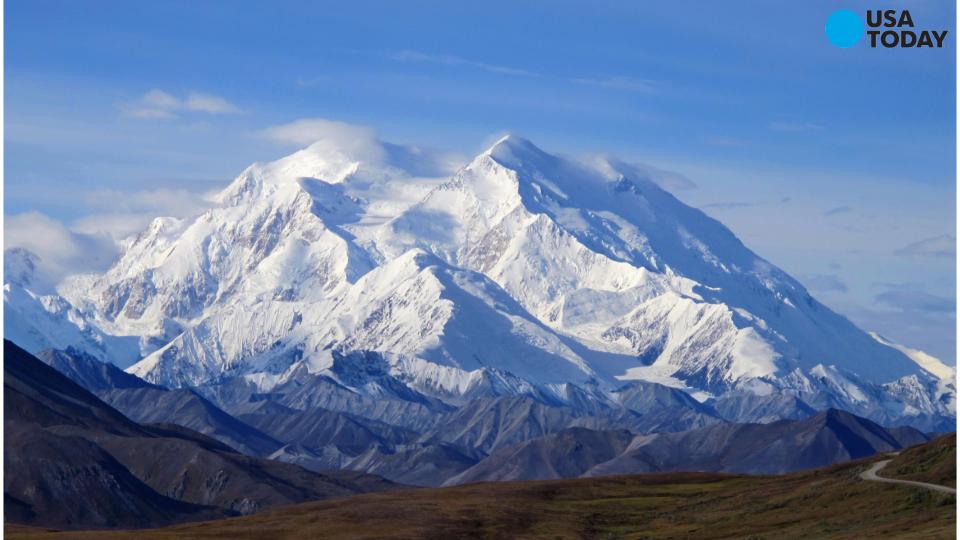
The White House just renamed America's tallest mountain
00:43
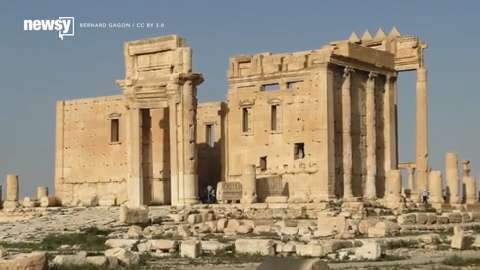
Fears ISIS will destroy Palmyra are once again justified
01:10
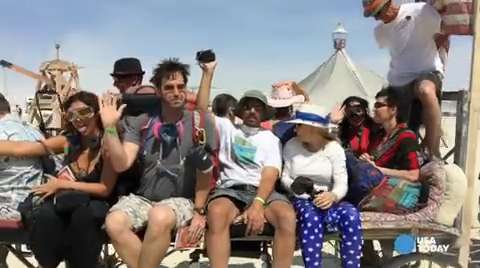
Dusty Burning Man is under way
00:37
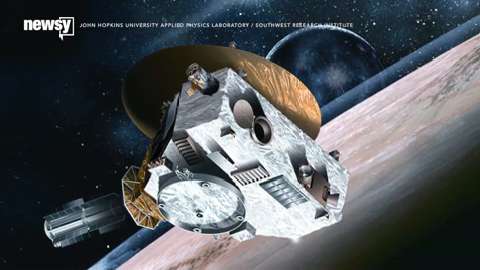
Pluto probe new horizons has a few scientific flybys left
01:14
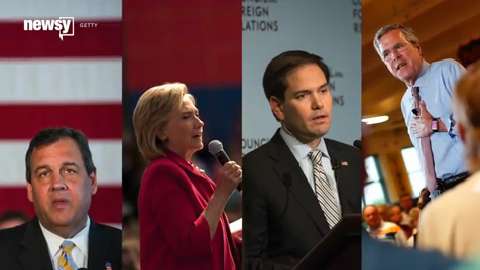
Why are presidential candidates talking about heroin?
02:35
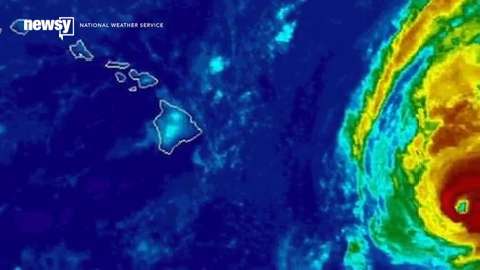
Hurricane Ignacio nears Hawaii, but its course is unknown
00:53
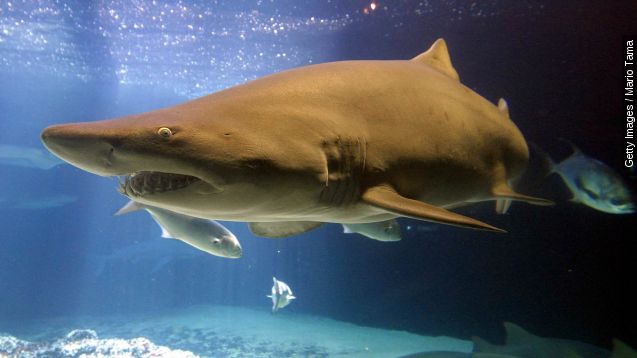
Shark takes A bite out of California woman's surfboard
01:23
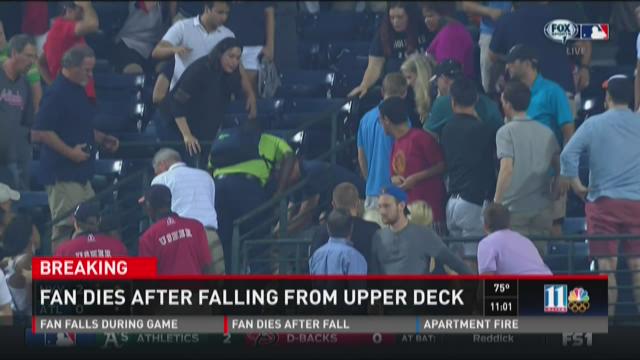
Fan dies after falling from upper deck
02:56
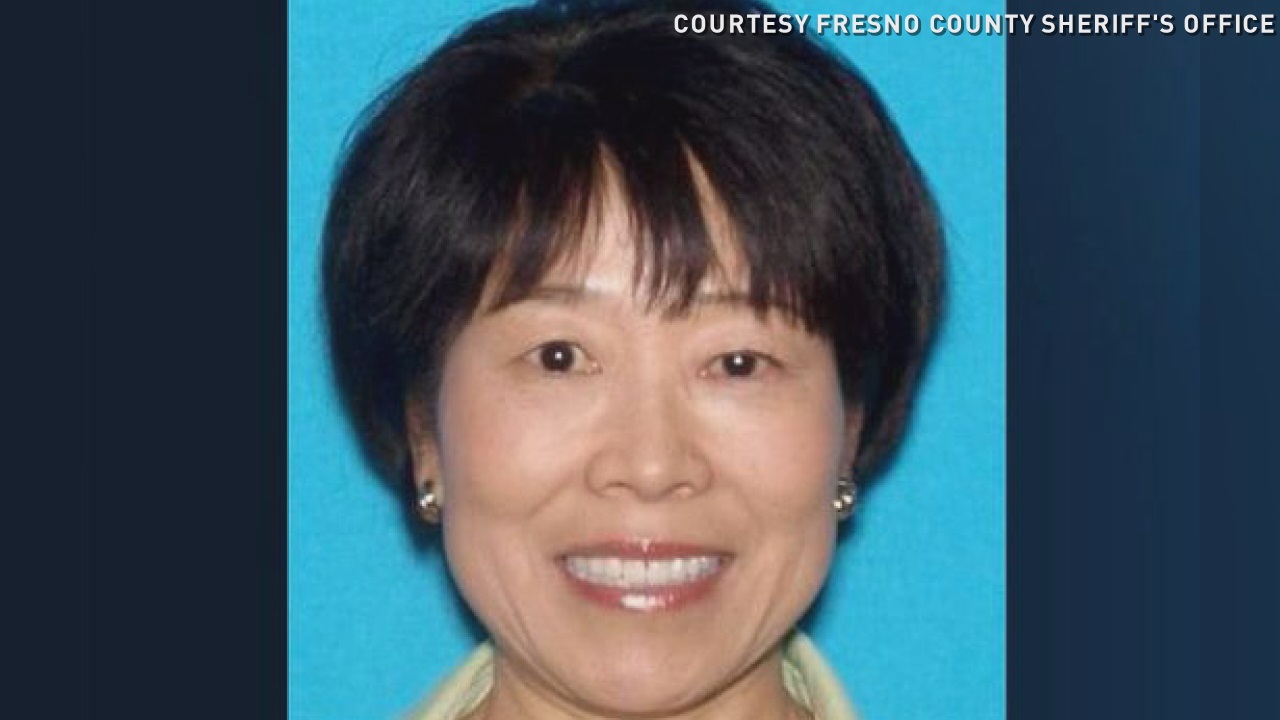
Hiker missing for 9 days found alive, injured in wilderness
01:30
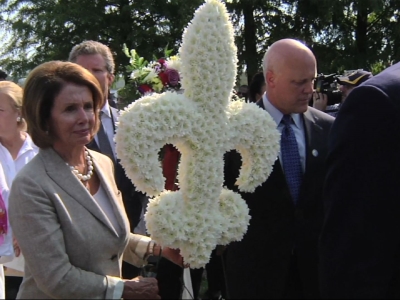
Katrina Victims Remembered Through Song, Music
01:16
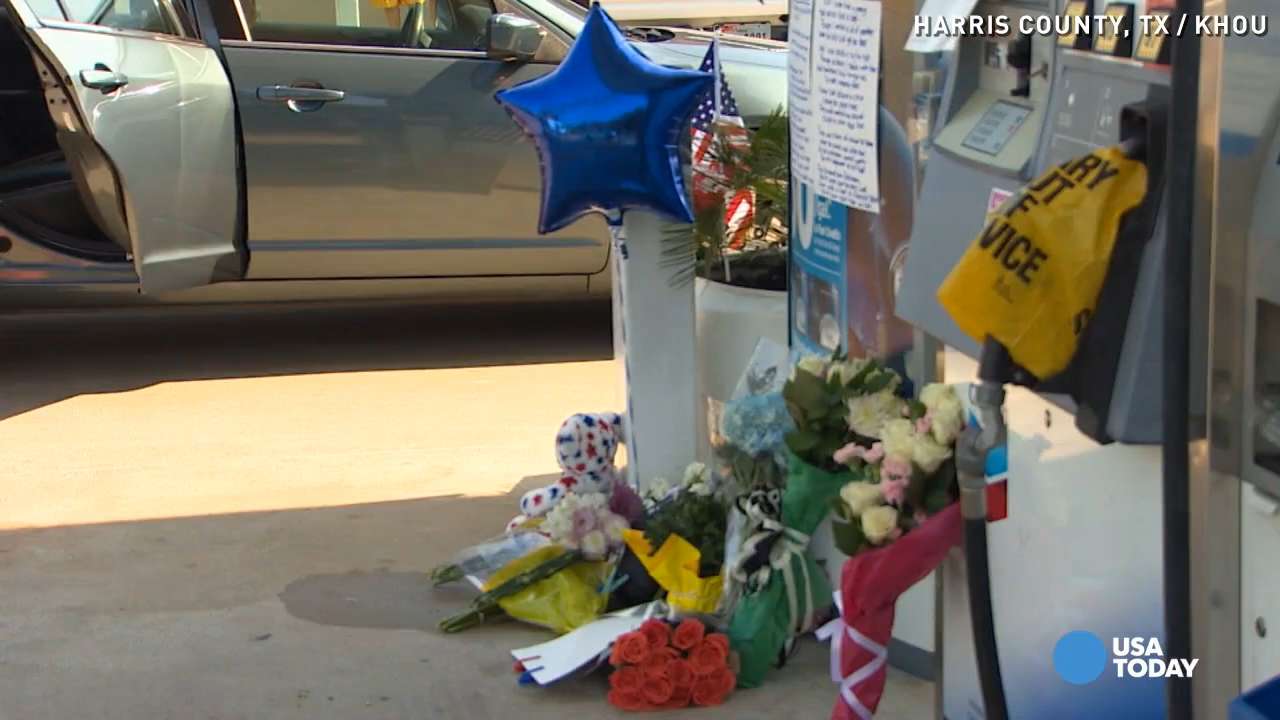
Makeshift memorial marks spot of Texas deputy's death
02:28
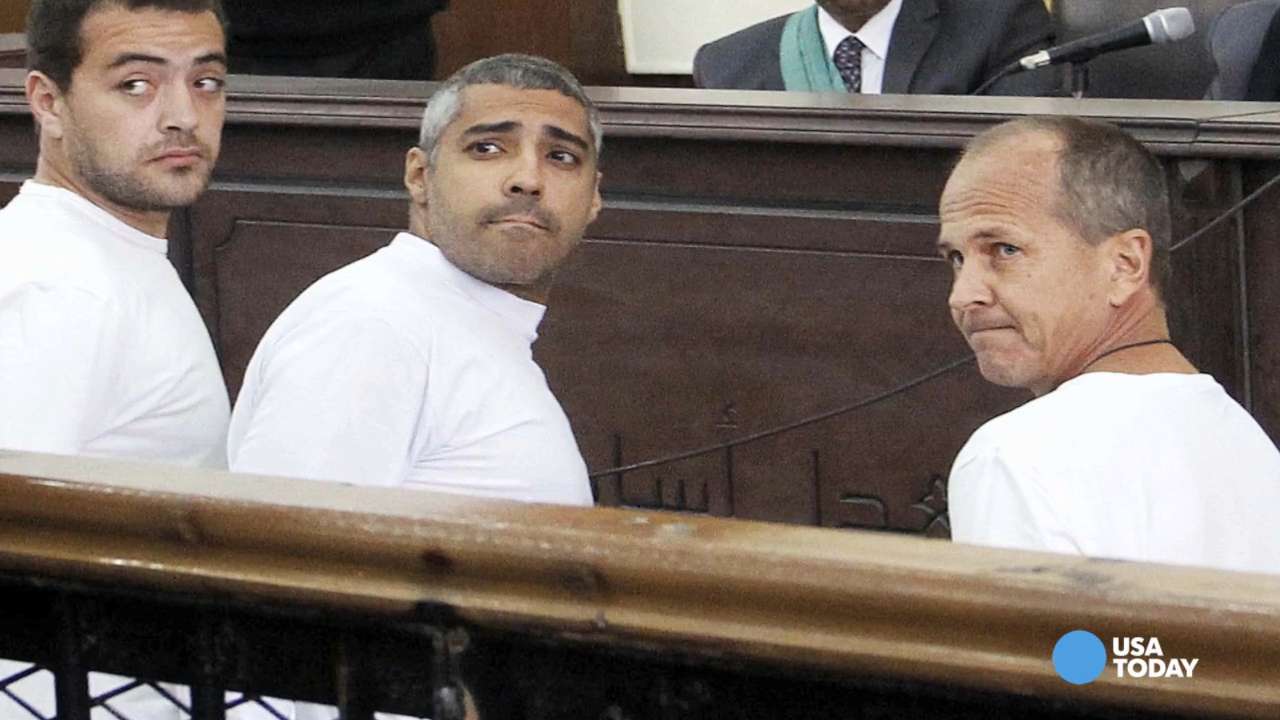
Egypt sentences Al-Jazeera reporters to prison time
00:53
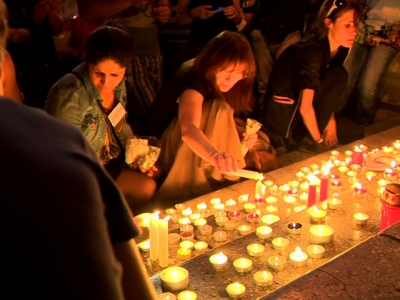
Raw: Vigil for 71 Refugees Found Dead in Truck
01:12
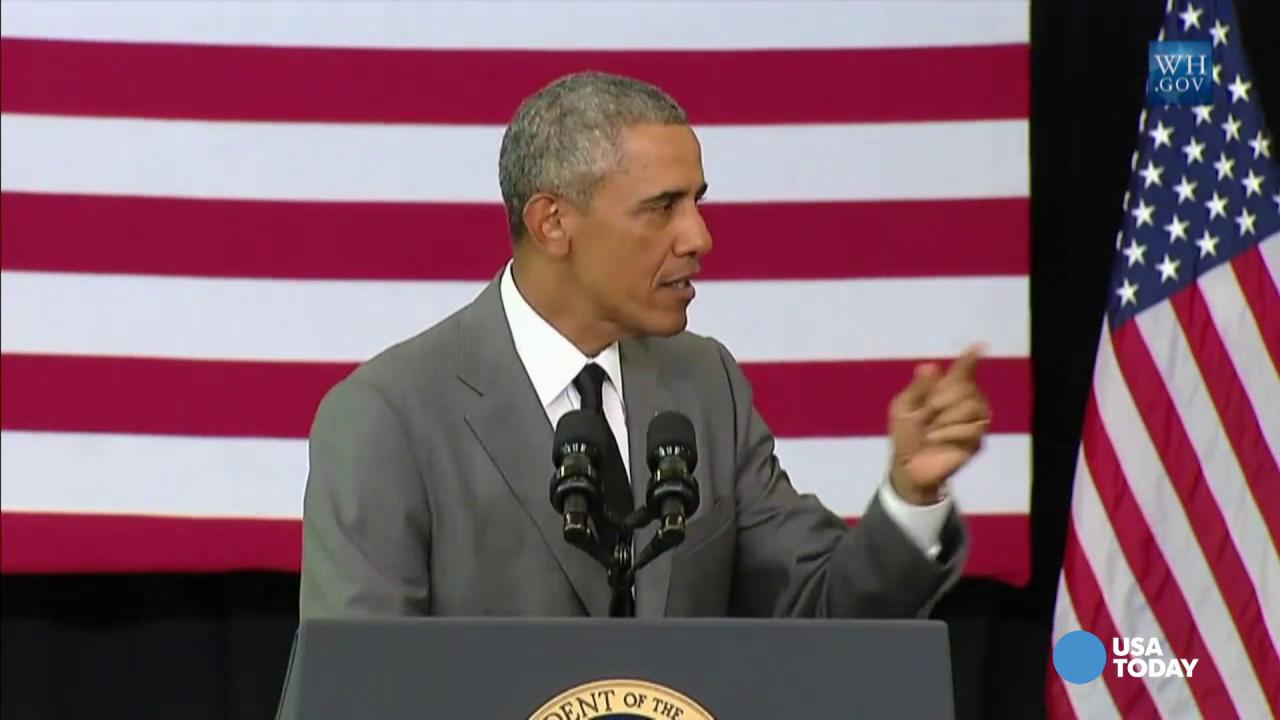
Obama to people of New Orleans: 'You inspire me'
02:19
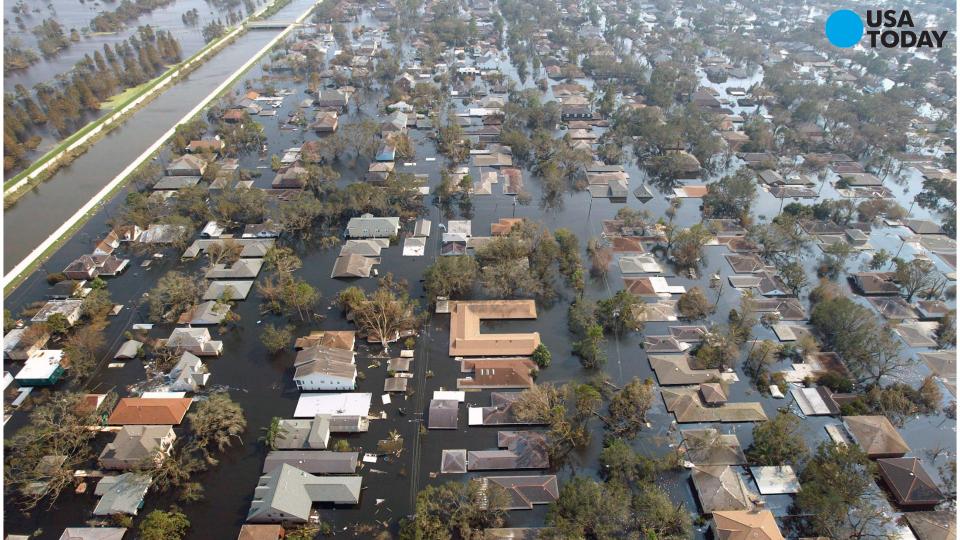
These are the cities most vulnerable to the next Katrina
00:51
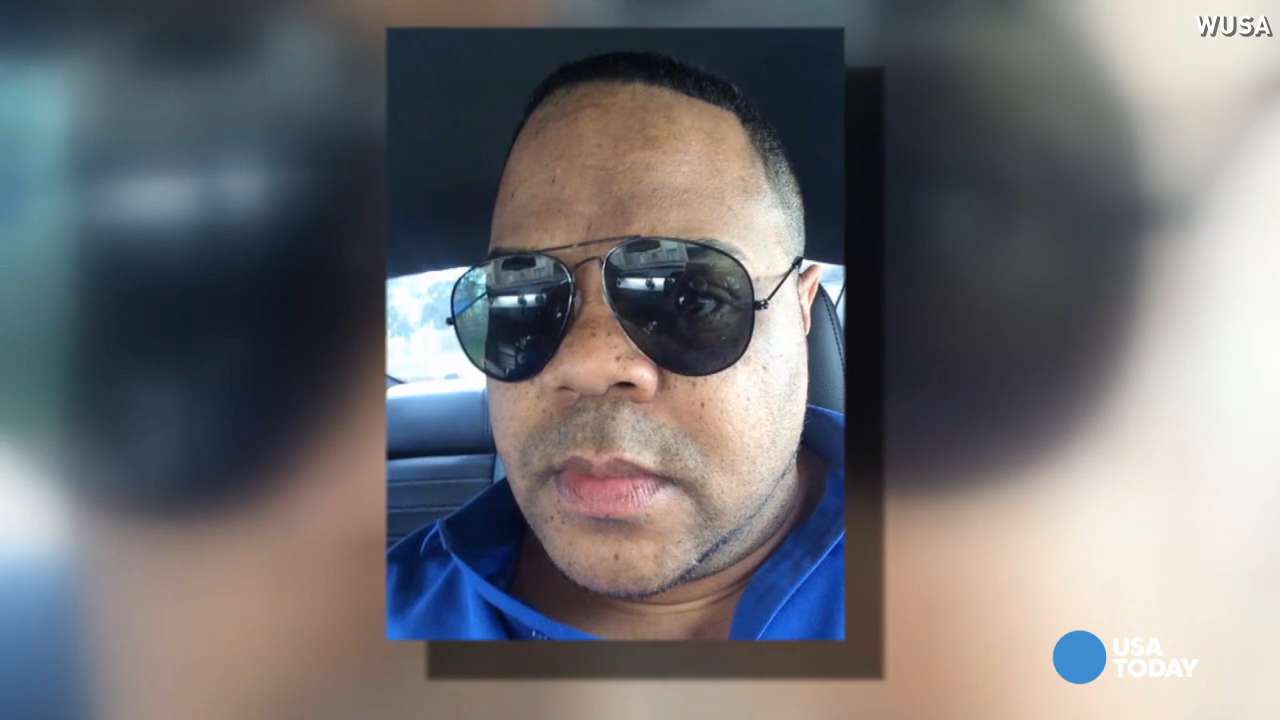
WDBJ shooter had ammo, wigs, to-do list in car
01:03
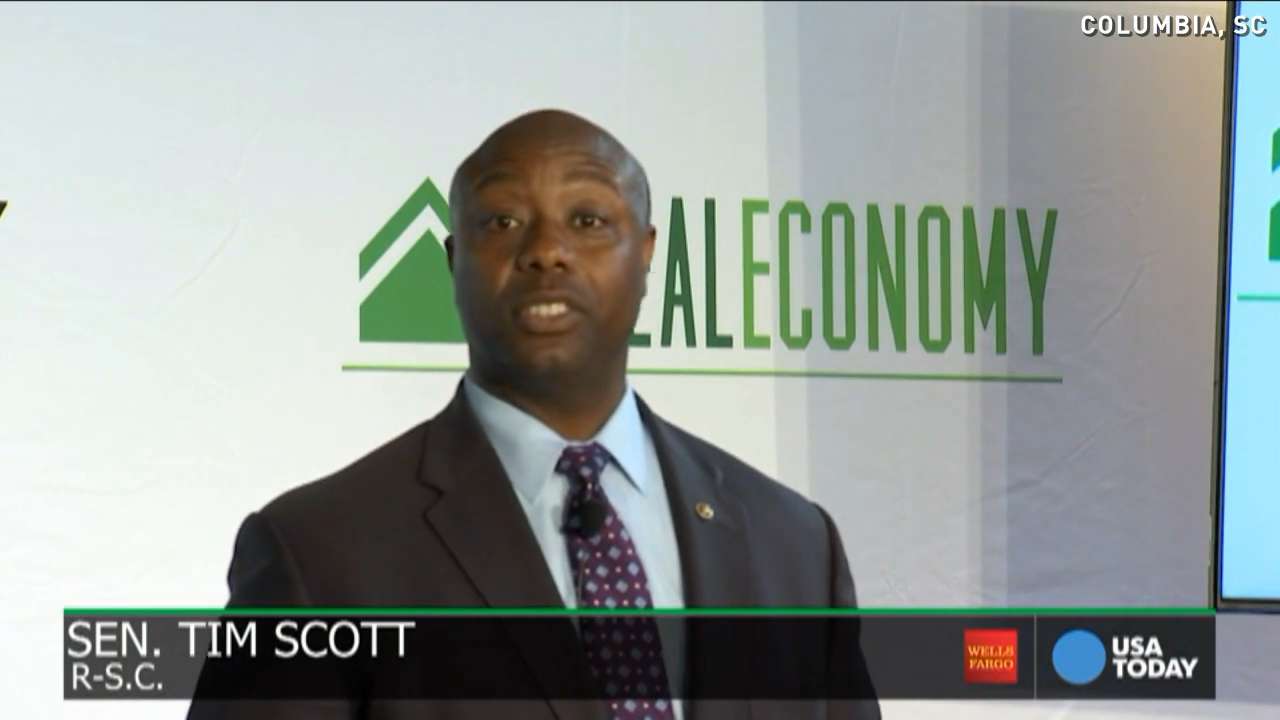
South Carolina Sen. Tim Scott's keys to a good economy
02:29
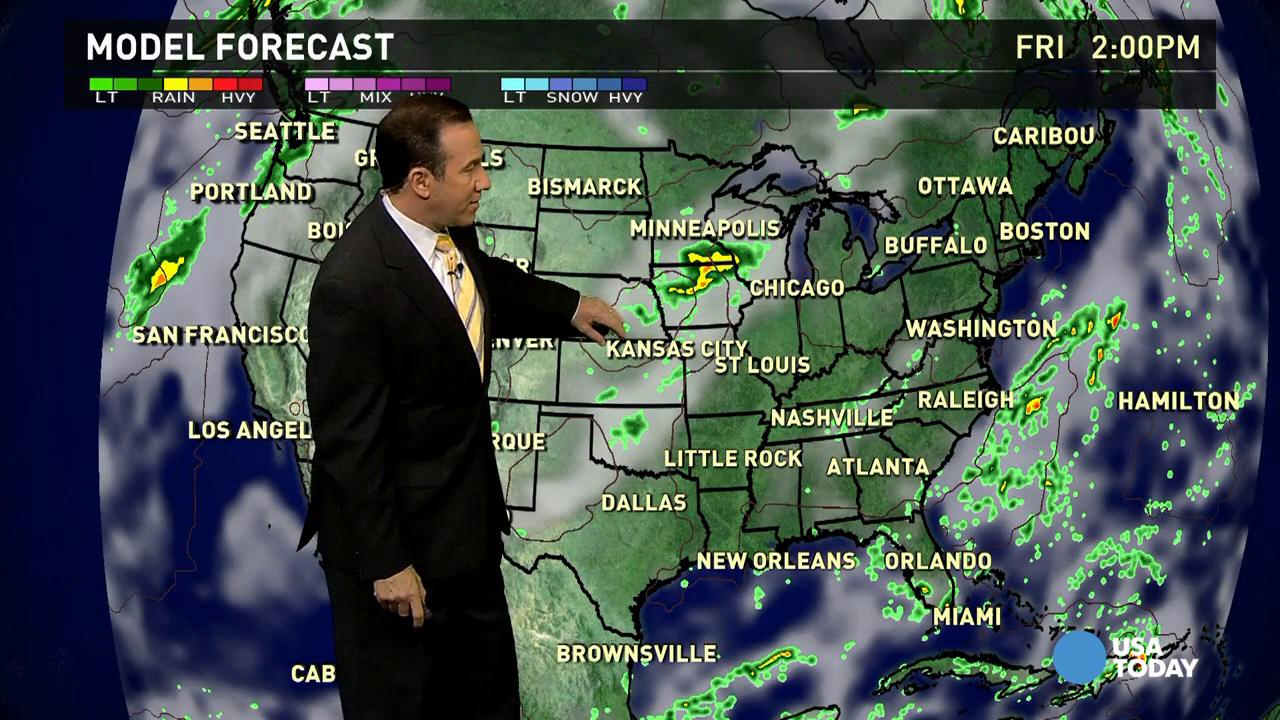
Friday's forecast: Erika heads toward Florida
02:45
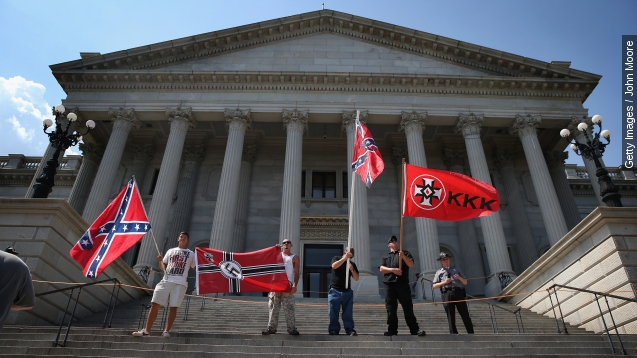
Hate groups love Donald trump, and he doesn't seem to mind
01:38
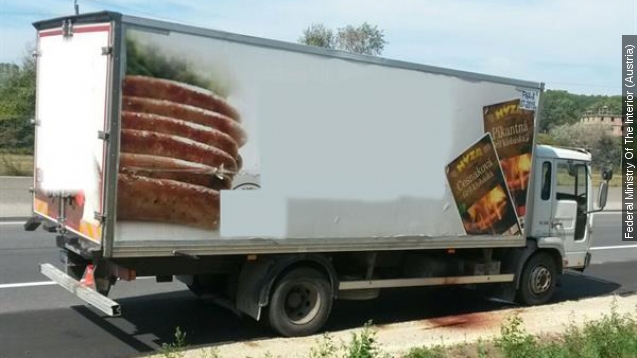
Europe's migrant crisis leads to grisly scene in Austria
01:14
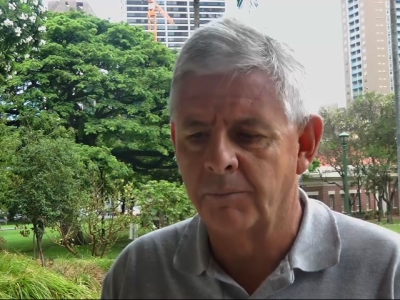
Ex-Boss: Virginia Gunman a 'Professional Victim'
01:22
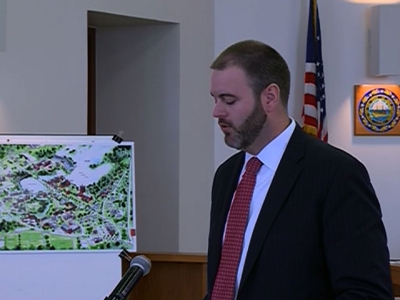
Prosecution: Student Planned NH Sexual Assault
01:18
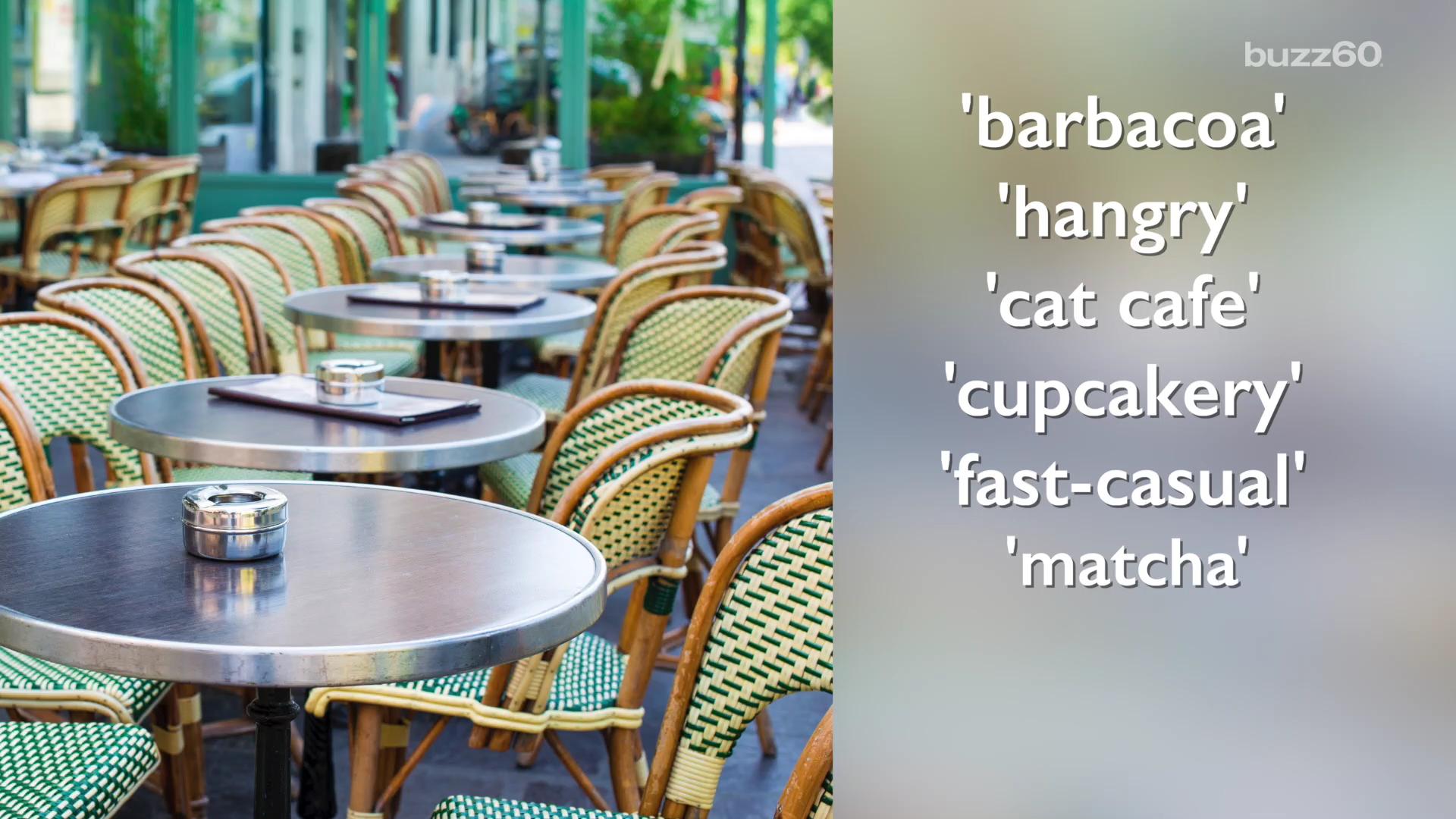
'Awesomesauce', 'mic drop', and other weak sauce new words on OxfordDictionaries.com
01:06
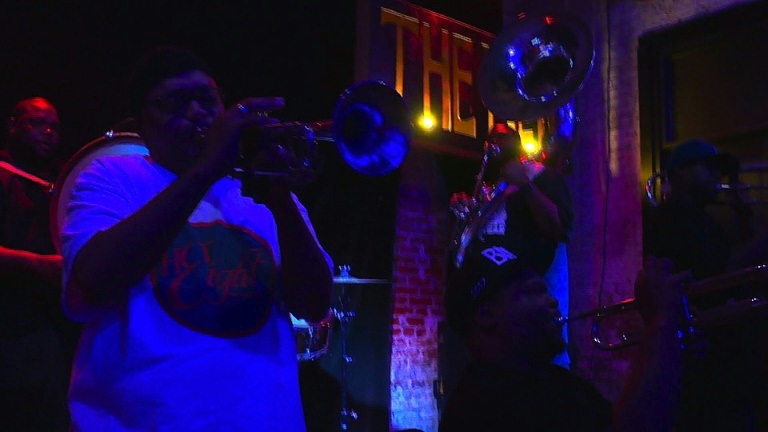
Ten years after Katrina, the beat goes on in new Orleans
02:56
Emmett Till And The renewed push to solve civil rights cases
01:38


UP NEXT
03
From stickers like Hillary Clinton to switchers like Marco Rubio , the presidential candidates have a wide and varied history when it comes to their views of religion. Rick Hampson for USA TODAY.
The religious journey of Marco Rubio has more twists than a pretzel. By his account, he was baptized a Roman Catholic, then baptized a Mormon, then got his parents to return to the Catholic Church and to enroll him in parochial school, from which he quickly withdrew — all before he turned 13.
Rubio now attends Catholic churches as well as an evangelical Protestant megachurch that his wife (whom he married in a Catholic ceremony) joined during a period when Rubio himself had drifted away from church.
Pope Francis' first U.S. visit next month will focus attention on the 2016 presidential candidates' religious backgrounds, many of which contain almost as many shifts as Rubio's.
In this, the candidates reflect a big part of the nation they hope to lead, one characterized by looser religious loyalties and what a report this year by the Pew Research Center called "a remarkable degree of churn in the U.S. religious landscape.''
Candidates' church switching is "a nice reflection of contemporary American religion,'' says David Campbell, a Notre Dame political scientist and author of American Grace: How Religion Divides and Unites Us. "Voters recognize and accept it in the candidates, because they do it themselves or know people who have.''
The presidential field splits roughly into two groups: stickers and switchers.
The stickers, like a majority of Americans, still worship in the denomination in which they were raised. The switchers have changed denominations or faiths — sometimes, like Rubio, more than once.
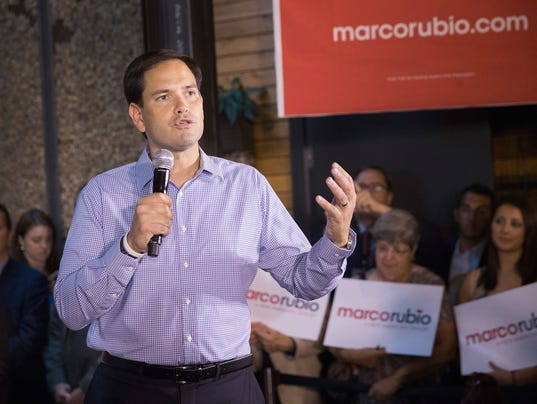
Jeb Bush and his wife, Columba. (Photo: Joe Raedle, Getty Images)
Switchers include these candidates:
• Jeb Bush was baptized an Episcopalian and attended Presbyterian and Episcopal churches as a boy in Texas. In 1995, two decades after marrying a Roman Catholic, he became one himself.
• Scott Walker traded his preacher-father's relatively liberal mainline Protestant American Baptist affiliation for membership in a more conservative nondenominational evangelical megachurch.
• Rand Paul was baptized Episcopalian, attended a Baptist university (Baylor) and now goes to a Presbyterian church at home in Bowling Green, Ky.
• Bobby Jindal, born a Hindu, converted to Roman Catholicism while in college (to his parents' dismay) and now calls himself "an evangelical Catholic.''
• John Kasich, who as a boy aspired to become a Roman Catholic priest, later drifted away from that church. He says that after his parents were killed in a car crash in 1987, he turned back to God. He now belongs to a church in Westerville, Ohio, that's affiliated with the Anglican Church in North America. That denomination was founded in 2009 by former members of the U.S. Episcopal Church dissatisfied with its increasingly liberal tendencies, such as the election of a gay bishop.
• Carly Fiorina, raised an Episcopalian, has spoken of her "personal relationship'' with God, but belongs to no particular denomination or church.
Stickers include candidates like Hillary Clinton, a Methodist since childhood; Martin O'Malley, who attended Catholic elementary school, high school and college, sent his kids to Catholic school and attends Mass daily; and Mike Huckabee, a Southern Baptist who became an ordained a minister in that denomination.

Hillary Clinton prays at the start of a campaign stop at Christ the King United Church of Christ in Florissant, Mo., on June 23, 2015. (Photo: Jeff Roberson, AP)
Ben Carson is a sort of double sticker. He was baptized twice into the Seventh-day Adventists — first as a boy in his native Detroit, and again a few years later at a church in nearby Inkster, Mich., after telling the pastor he'd not fully understood baptism the first time.
It's hard to categorize Donald Trump. Although he was raised as a Presbyterian — his mother was born in heavily Presbyterian Scotland — he's been associated as an adult with Marble Collegiate Church on Fifth Avenue in Manhattan.
Marble Collegiate, part of the Reformed Church in America (once Dutch Reformed), was long the pulpit of the Rev. Norman Vincent Peale, author of the influential '50s best-seller The Power of Positive Thinking.
Rubio is a category of his own. He's what the Pew Center calls a "revert" – someone who leaves a childhood religion before returning to it later in life.
Rubio and the switchers aren't aberrations. About a third of Americans have changed their religious affiliation from the tradition in which they were raised, according to the Public Religion Research Institute, which studies religion and politics.
If the three major Protestant traditions (evangelical, mainline and historically black) are treated as separate categories, then the share of Americans who have switched religions rises to 42%, according to a survey released in May by the Pew Center. And that doesn't include Rubio and other reverts.
The switchers' changing religious preferences haven't fazed voters, but rather seem a familiar part of contemporary American society. "The American religious landscape is a fluid place,'' says Robert Jones, CEO of the Public Religion Research Institute. "So the fluid religious biographies of the presidential candidates are familiar parts of life for many of their constituents.''
America has always been notable for its religious dynamism. Many different Christian denominations, mostly Protestant, have competed for members, suggesting to some scholars why America is more religiously observant than Europe, the home of many of America's original settlers.
In high places, though, there's been a certain premium on constancy. As president, Franklin D. Roosevelt remained senior warden (a sort of board chairman) of St. James Episcopal Church in Hyde Park, N.Y., where he was baptized. So similarly rock-ribbed an Episcopalian was George H.W. Bush that as president he continued to serve on the vestry (or board) of St. Anne's Church in Kennebunkport, Maine, site of the family's summer compound.

President John F. Kennedy and Pope Paul VI talk at the Vatican in this July 2, 1963, photo. (Photo: AP)
And it's hard to imagine John F. Kennedy as anything other than a Catholic.
But Dwight Eisenhower, whose mother was a member of a denominational precursor of the Jehovah's Witnesses, was baptized as a Presbyterian in 1953 after moving into the White House. And Jimmy Carter, of solid Southern Baptist stock, left that conservative denomination in 2000 because he said its doctrines did not conform with his (more liberal) understanding of Christ's teachings.
In his memoir, An American Son, Marco Rubio expresses no regrets about his own religious odyssey. He says he has fond memories of his three childhood years in the Mormon church. (His family joined the Church of Jesus Christ of Latter-day Saints after moving from Miami to Las Vegas, and eventually left at young Marco's instigation.)
And he says that the evangelical Protestant church to which his wife led him, Christ Fellowship in Palmetto Bay, Fla., sparked a "spiritual reawakening'' in them both. The Rubios tithed $50,000 to the church over a period of three years a decade ago.
But Rubio now considers himself a Catholic. Even while attending Christ Fellowship, "I craved, literally, the Most Blessed Sacrament'' of Holy Communion, he wrote in his autobiography. He cited an old saying that doubtless resonates with Pope Francis: "Once a Catholic, always a Catholic.''
Follow @rickhampson on Twitter.
Read or Share this story: http://usat.ly/1EvA3zT
TOP VIDEOS

VMAs 2015: Fashion, selfies, dancing & Miley
02:18

Crowds flock to Georgia to pay tribute to cancer-stricken Jimmy Carter
01:13

Kids are not going to like the healthier surprises this back to school season
01:00

The White House just renamed America's tallest mountain
00:43

Fears ISIS will destroy Palmyra are once again justified
01:10

Dusty Burning Man is under way
00:37

Pluto probe new horizons has a few scientific flybys left
01:14

Why are presidential candidates talking about heroin?
02:35

Hurricane Ignacio nears Hawaii, but its course is unknown
00:53

Shark takes A bite out of California woman's surfboard
01:23

Fan dies after falling from upper deck
02:56

Hiker missing for 9 days found alive, injured in wilderness
01:30

Katrina Victims Remembered Through Song, Music
01:16

Makeshift memorial marks spot of Texas deputy's death
02:28

Egypt sentences Al-Jazeera reporters to prison time
00:53

Raw: Vigil for 71 Refugees Found Dead in Truck
01:12

Obama to people of New Orleans: 'You inspire me'
02:19

These are the cities most vulnerable to the next Katrina
00:51

WDBJ shooter had ammo, wigs, to-do list in car
01:03

South Carolina Sen. Tim Scott's keys to a good economy
02:29

Friday's forecast: Erika heads toward Florida
02:45

Hate groups love Donald trump, and he doesn't seem to mind
01:38

Europe's migrant crisis leads to grisly scene in Austria
01:14

Ex-Boss: Virginia Gunman a 'Professional Victim'
01:22

Prosecution: Student Planned NH Sexual Assault
01:18

'Awesomesauce', 'mic drop', and other weak sauce new words on OxfordDictionaries.com
01:06
Ten years after Katrina, the beat goes on in new Orleans
02:56

Emmett Till And The renewed push to solve civil rights cases
01:38
Strict Standards: Only variables should be assigned by reference in /home/noahjames7/public_html/modules/mod_flexi_customcode/tmpl/default.php on line 24
Strict Standards: Non-static method modFlexiCustomCode::parsePHPviaFile() should not be called statically in /home/noahjames7/public_html/modules/mod_flexi_customcode/tmpl/default.php on line 54
Find out more by searching for it!
